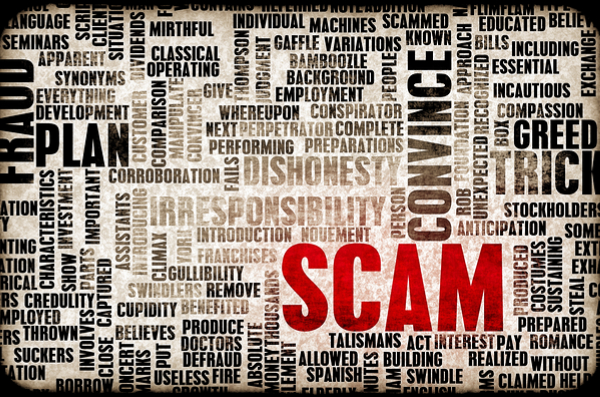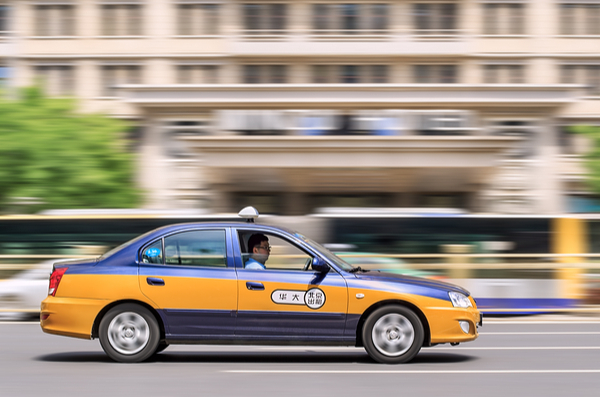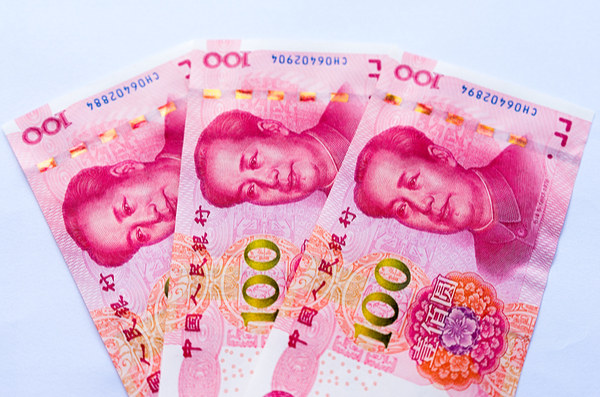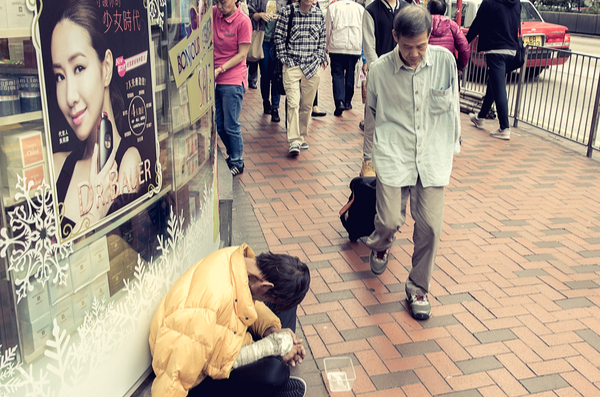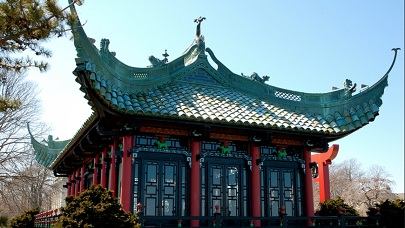03 Nov
2016
Top 4 China Scams To Avoid While on a Business Trip
Transportation & Travel By China Car Service Comments Off on Top 4 China Scams To Avoid While on a Business Trip
Like most people, after a long flight, all you want to do is leave the airport and head straight to your final destination. The absolute last thing you want to do is fall victim to one of various scams in China that can happen unexpectedly.
Below, we discuss the top 4 China scams that travelers suffer while on business trips and how you can avoid them. Being aware of what to look for to avoid scams in China could make a major difference in the experience of your trip. After all, better safe than sorry.
The ‘Black’ Taxi Scams
“Black” taxis don’t get their name from the color of their car, but because they’re illegal taxis whose drivers make a living by overcharging foreigners. These taxis usually don’t have meters or have fake meters, rigged to charge rates that are double the price of regular taxis.
They’ll have several ways of employing their scams. For example, when passengers are traveling in groups, the drivers will agree on a fare and then, once you’ve reached your destination, they’ll clarify the rate was meant per person.
Black taxis are also known for dropping passengers off at an unknown destination and driving off with their luggage once they’ve received their pay.
These scams occur at all major airports, as well as hotels and city attractions. Luckily, it’s easy to avoid this type of scam if you know what to look out for:
- All legal taxis in China have a license plate that begins with “京 B,” while illegal taxis are usually only marked by a red light hanging inside the top of their windshields to mimic the red “available” lights of Chinese taxis.
- When arriving at the airport, always locate and wait in the official taxi line for a taxi. Avoid taxi drivers who approach you to offer you a ride (“Taxi! Taxi!”).
- It’s good to have a general understanding of what the normal taxi rates are in China, so you know how much a taxi ride should cost. This way you’ll notice if you’re being overcharged.
- Never ride in a taxi that doesn’t have a meter.
- Even if it does, make sure the driver turns it on, otherwise the price of the fare will be whatever they decide.
- Mind your luggage:
- If you can, keep your luggage with you in the back seat.
- If you can’t keep your luggage with you, make sure to retrieve it before paying the fare.
- If you realize you’re being scammed, tell the driver to stop the car immediately and take a picture of them, their registration (which should be visible), and their license plate. With this information, you’ll be able to report them.
- Alternatively, if you’d rather avoid the risk, you can always hire a trusted car service company to transport you to your destination.
- This is the most reliable option, as you’ll be collected straight from the airport and taken to your desired destination without any hassle.
Additionally, most taxi drivers in China don’t speak English. If you’d rather travel with a driver you’re sure you can communicate with, hire your own private car to make sure there are never any misunderstandings.
Preparing for a trip to China? A private transfer is the safest, quickest way to travel from the airport to the city. China Car Service is a trusted transportation service helping business travelers for almost two decades. We provide door-to-door service at competitive prices.Make your journey stress-free and contact our 24/7 team at Bookings@ChinaCarService.com with questions, or get a quote below. Use this promo code: 10CARBLOG to get a $10 discount on your 1st service. |
Counterfeit Money Scam
The counterfeit money scam is common all over China. Drivers use it to take advantage of foreigners who aren’t yet familiar with Chinese bank notes.
Thankfully, this is one of the easier scams to avoid. Nevertheless, it’s good to always stay alert. This scam occurs when you’re given back your change, particularly from taxi drivers or tour guides. You’re given fake notes in return, particularly Y50 and Y100 bills.
When purchasing something, vendors may also quickly exchange one of your authentic notes for a fake one and accuse you of giving them counterfeit money. If you didn’t see the exchange, you can’t hold them liable. Here’s how to avoid it:
- Upon receiving bills, don’t be shy. Inspect the bill thoroughly, people in China are accustomed to doing this. If the note feels slippery or too thin and the watermark doesn’t look legitimate, return the note and demand your money back.
- Make sure you get your money from a reputable source. Withdraw from the local ATMs or exchange from a local bank in order to avoid receiving counterfeit money.
- Break your Y100 notes for smaller change. Do this at an established business, such as a supermarket or at your hotel. This way you can use the smaller change for taxi rides and food.
- If a vendor or taxi driver “doesn’t have” change and willingly rounds up by giving you a larger note, be very suspicious. They may be giving you counterfeit money.
Here’s everything you need to know about How to Use an ATM in China and How to Open a China Bank Account.
Fake Beggars and Pickpockets
Beggars and pickpockets are common in cities all over the world. In China’s main tourist areas (like in Beijing’s Silk Alley), foreigners are targeted by beggars, as it’s easier to obtain a donation from Westerners than locals.
However, many of these beggars aren’t actually poor, they’re just looking to make a quick buck off of you by being extremely persistent. You’ll be approached by various types of beggars, such as ‘Aggressive beggars’ who aren’t afraid to touch or tug on your clothes until you give them something.
Some beggars will approach you pretending to have a disability. They’ll shove a piece of paper in your hands, claiming that it’s for a ‘cause’ which you need to support. Don’t fall victim to the fake monks either, (usually in Hong Kong) who dress up in official attire and present a donation book, asking for your donation.
Carrying cash in China is essential for taxis and shops that don’t accept foreign credit cards. This, however, makes you a prime target for pickpockets. They’ll work in pairs. One accomplice will distract you by asking you intrusive questions while the other quickly grabs your wallet, cell phone, or anything he can get his hands on. This frequently occurs in busy areas such as markets, subways, and taxi lines.
To avoid beggars and pickpockets from taking advantage of you:
- Always be aware of who is approaching you and what their intentions are, and don’t be afraid to say no to beggars. They’re targeting you because you’re a foreigner and they’re expecting to get away with it.
- When walking on the street or in large crowds, always be alert and keep your possessions close to you. Never put anything in your back pocket.
- Never flash cash or valuables in public. Always keep valuables out of sight of potential scammers and pickpockets who are looking for their next victim.
- WeChat Wallet is a handy tool you can use to make all sorts of payments, such as for taxis, hotels, restaurants etc. from your smartphone. With it, you won’t have to carry cash at all.
Find out more about Petty Crime Areas in China to Watch Out For and How to Avoid Crime In China.
The Tea House Scam
This type of scam is very popular in places like Beijing (at The Wangfujing shopping district and Houhai Lake nightlife district) and Shanghai (at The Nanjing Road shopping district and People’s Park). Solo males who are on a business trip are often prime targets for this type of scam.
A young female Chinese student will approach you alone or with two or three of her friends and offer to show you around personally, as it will ‘improve their English.’ They hope that, as a Westerner, you’re delighted to have some cultural interactions while on your trip and will happily respond with a ‘yes!’
Sometimes, they’ll catch you off-guard by claiming to be tourists, too. You likely won’t expect to be conned by a fellow tourist. Soon after, you’ll be invited for tea at a nearby restaurant. After your dining experience, however, the students will quickly disappear to the restroom. When the bill arrives, you’ll be shocked to find an exorbitant price!
There’s no use trying to explain the circumstance to the owner, he “won’t speak English” and is working together with the scammers. Ultimately, you’ll end up paying the full amount or the owner will call his friends at the police to come and force you to pay.
Here’s how to avoid this type of scam:
- Be very wary of who approaches you. It’s very common for Chinese people to ask foreigners to pose for a photo with them but it’s extremely unusual for a Chinese girl to approach foreigners on the street and very eagerly invite them for tea. Look out for young students who pose as couples and ask you to take their picture and then conveniently invite you to join them for tea, it’s part of the scam.
- Some Chinese people might be genuinely interested in you as a foreigner, so don’t give the cold shoulder to everyone who approaches you. Rather, test the waters by suggesting a different restaurant that you know of. Scammers will always insist on going to the place they’ve suggested.
- Never eat or drink anything unless you know the price first, even if you haven’t ordered anything and they place it on your table.
- If your ‘new friend’ offers to pay half of everything, don’t fall for it as it’s part of the hoax.
- Don’t be afraid to say no. If you feel something isn’t right, just walk away to avoid getting scammed.
Avoid any unpleasant experience during your trip! Take advantage of US$10 OFF online discount now and book your safe private car & driver hire service anywhere in China. Simply click the image below:
OUR TOP AIRPORT TRANSFER CITIES
If you find this blog useful, please feel free to share it!
Have you ever been the victim of a China Scam? What have you or your associates experienced?




